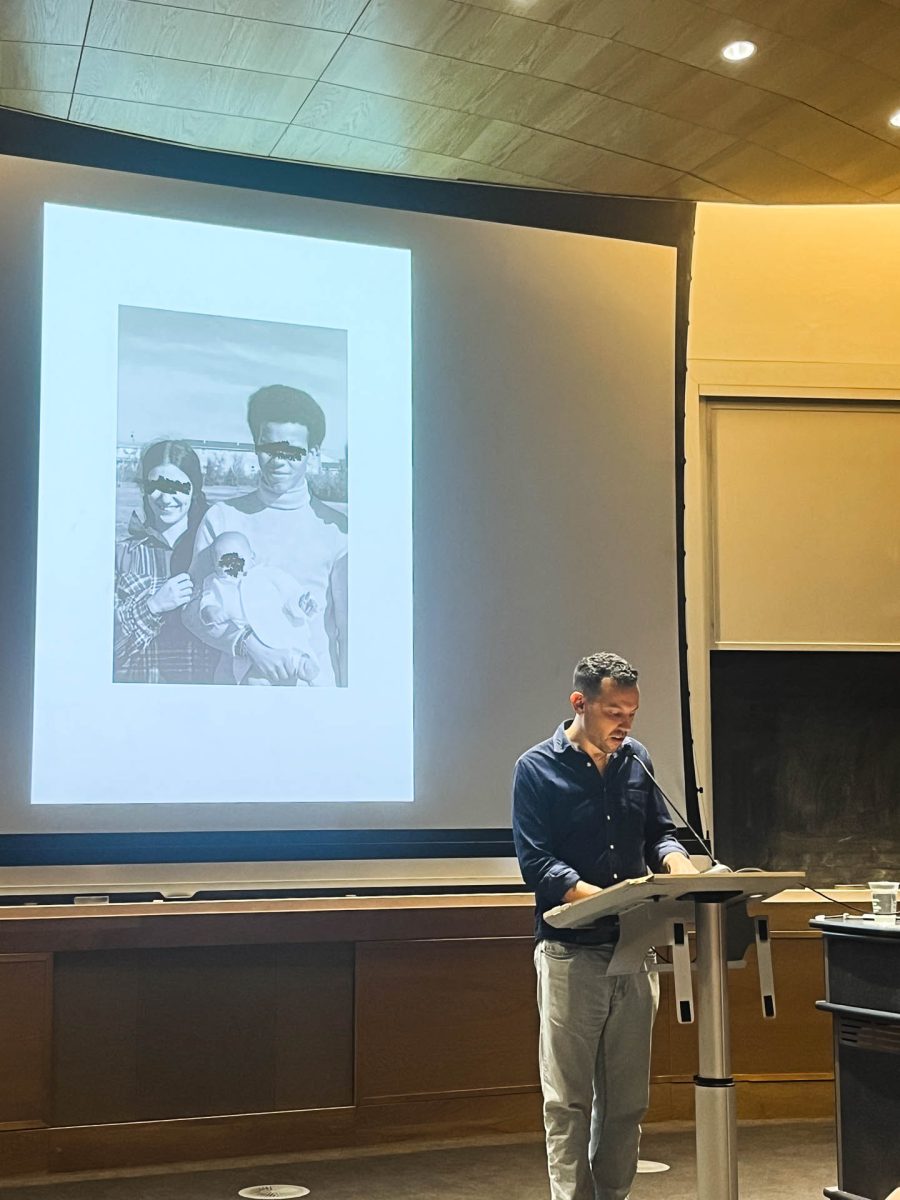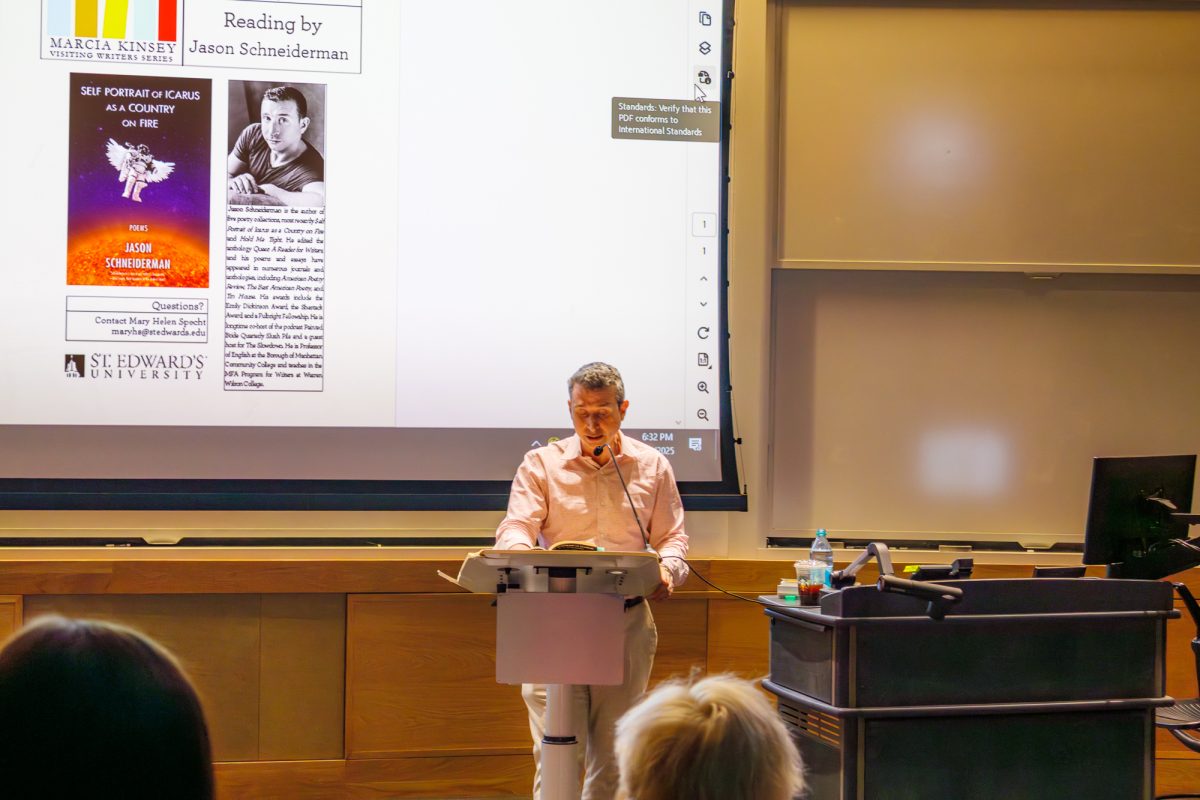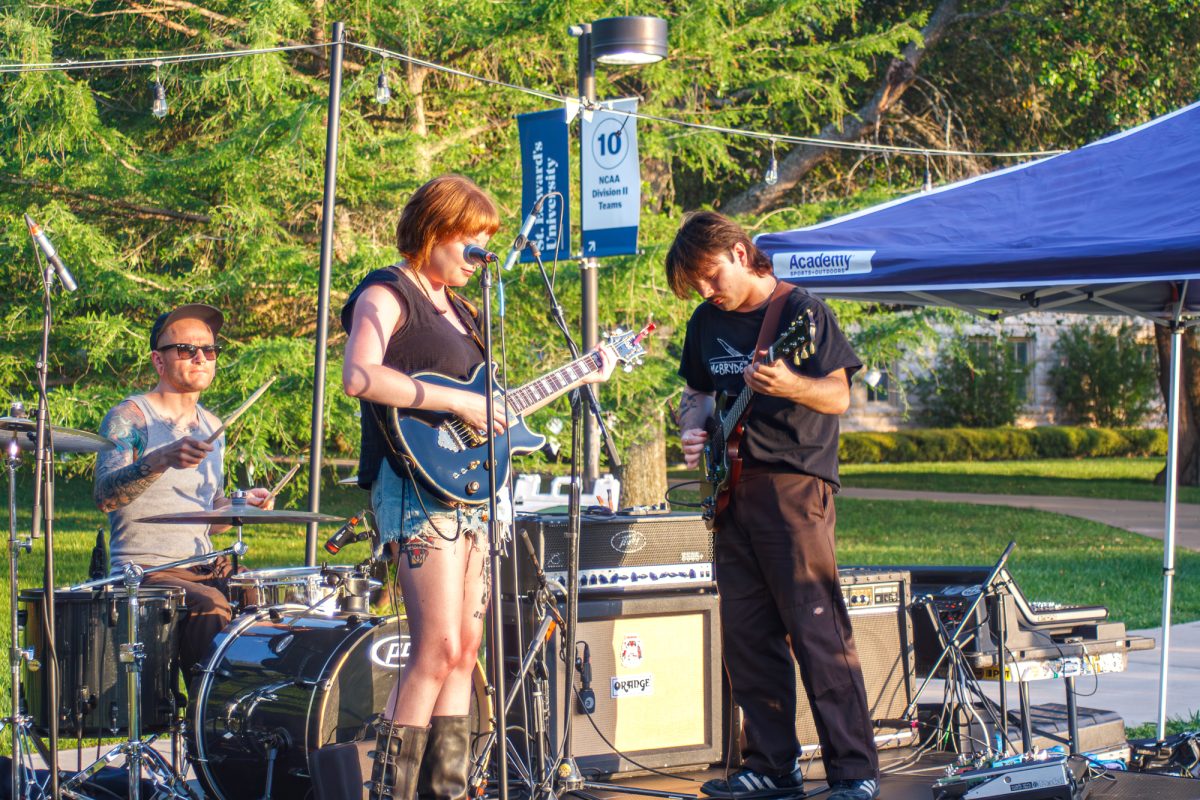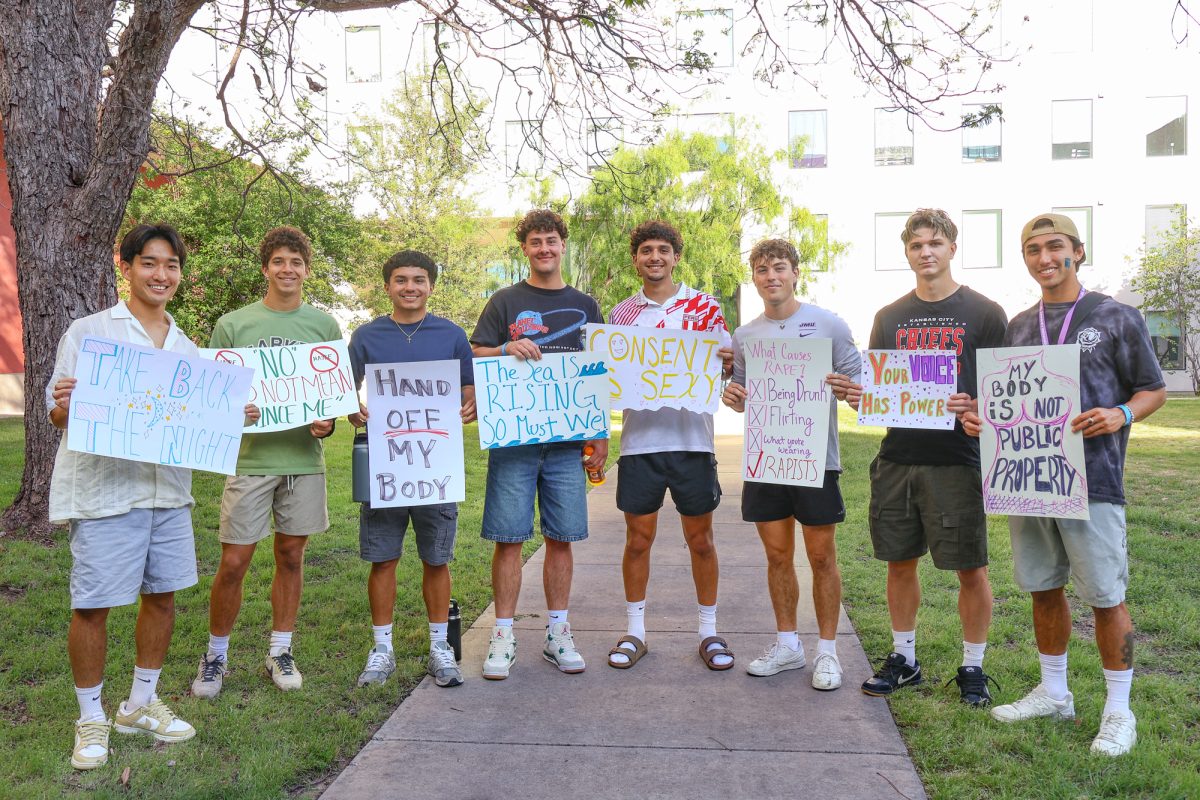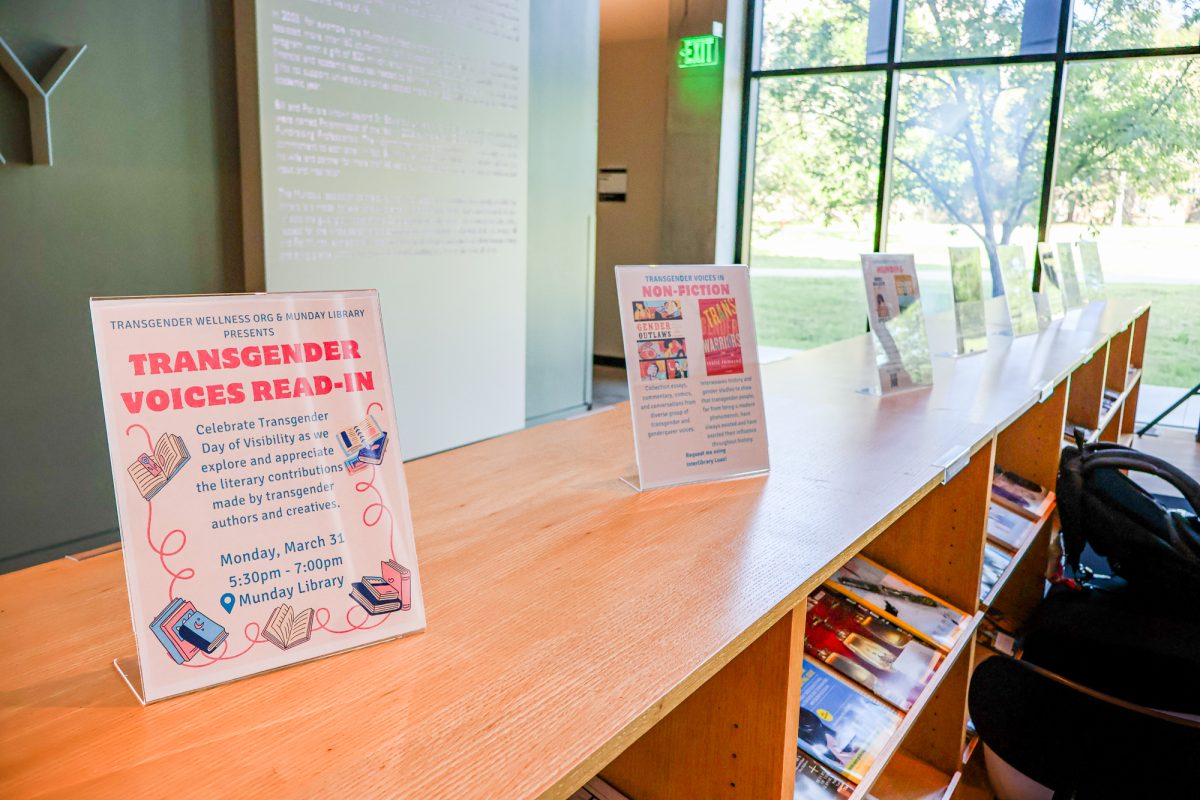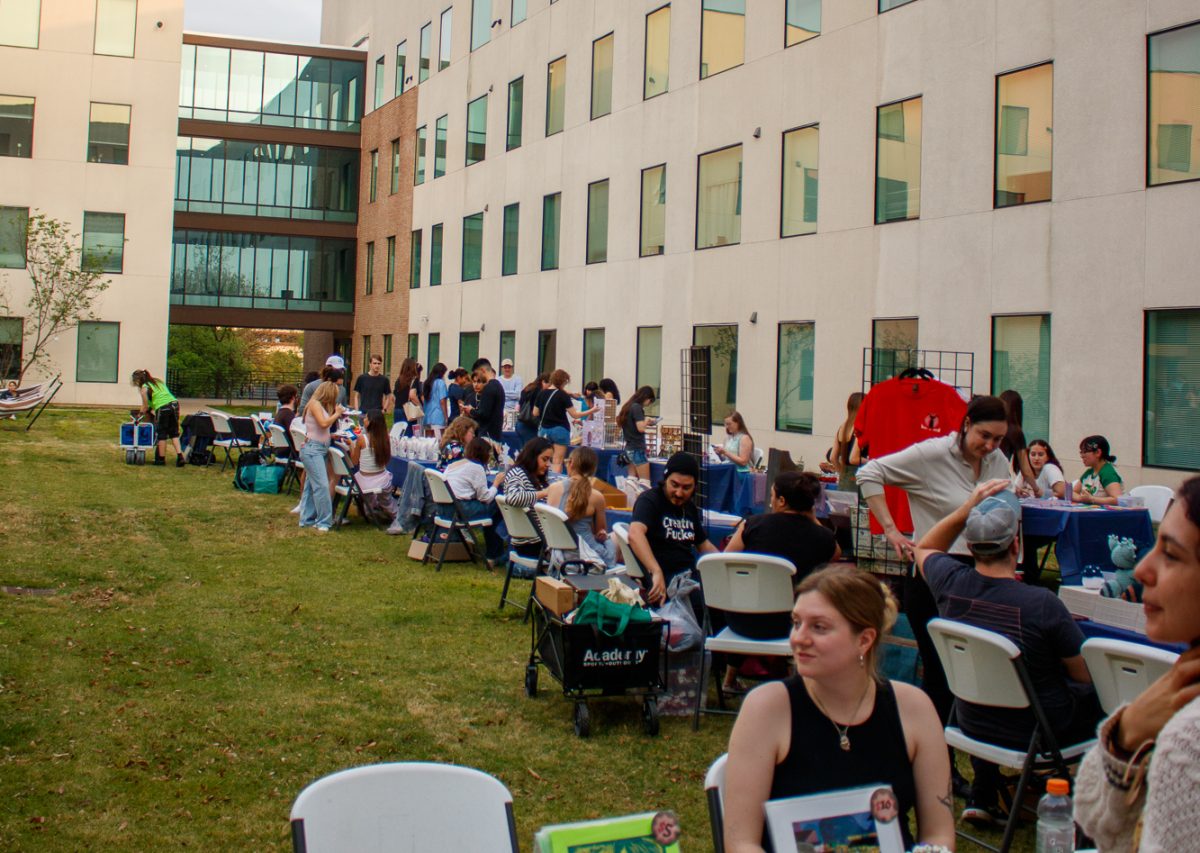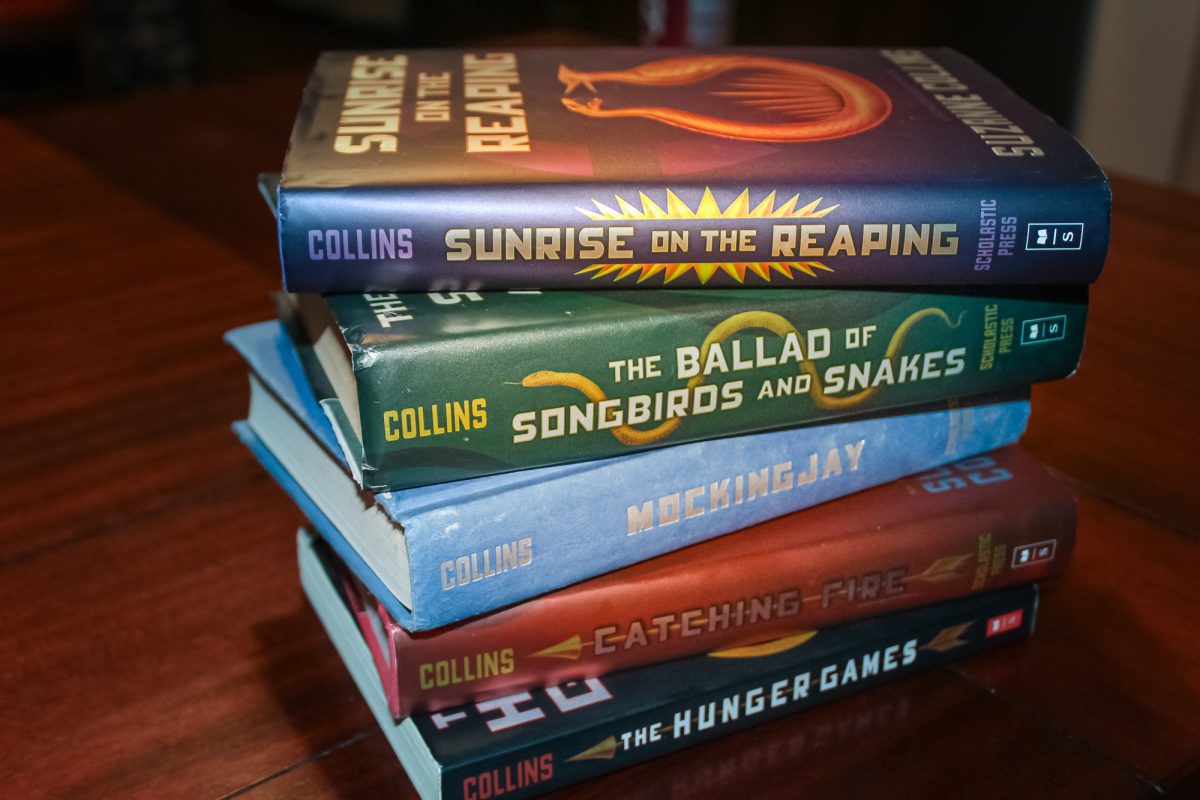The Marcia Kinsey Visiting Writers Series continued last week, featuring its first writer of the spring semester. This series seeks to spread the voices of prominent literary figures, offering students and faculty the opportunity to connect and discuss writing with published authors. Author Justin Torres took the time to read from his newest release, “Blackouts,” elaborate on his thought process regarding the novel and answer student and faculty questions.
Torres won the National Book Award for his 2023 novel, “Blackouts.” In a desert estate called the Palace, this story follows a young gay man as he tends to Juan Gay, a playful, elderly man who is dying. Both of these characters met many years before the events of the novel began, when they were institutionalized in a psych ward. In this deathbed conversation, they discuss art, love and their histories. “Blackouts” is a book about the delights and dangers of storytelling and being engaged in the history a person is living in.
“Blackouts” got its name from the blackout poetry featured throughout the novel. Torres painstakingly went through “Sex Variants: A Study of Homosexual Patterns” by George W. Henry and made poetry out of it. “Sex Variants” details a study conducted in the 1930s, where several queer individuals were interviewed on their sexualities, and psychologically dissected by doctors. Torres blacked out portions of this study to make poetry, finding beauty and queer art in an incredibly homophobic study.
“I was born in 1980,” Torres said. “I came into the world at the same time as AIDS. The vitriol people felt against gay men in particular and the ways they were blamed, it was hard to explain the public sentiment, being young and queer. It’s not an original story and that’s what’s really sad. The institutionalization of queer people is continuing to happen. It’s a part of queer history that I lived. But it’s also, so many people lived through it. I’m really interested in the ways in which institutions are used to enforce social attitudes and the harm that does.”
Before reading his work in the Visiting Writers Series, Torres visited Mary Specht’s fiction workshop class. Students in this course read his first book, “We the Animals,” which gained him national renown. There, he answered student questions in regard to inspiration and the development of his writing process. He spoke on integrating his own experience into his writing, the vulnerability associated with being published, and his craft. His biggest piece of advice to young writers is to slow down.
“I dropped out of college, don’t take advice from me,” Torres said. “I would say, take your time. I think that’s the best advice. Just, you only get to debut once. So if you’re really serious about this writing thing, it can feel like, ‘I just want to publish, I just want to publish!’ But, you send stuff out and it lives in the world. You can’t take it back, it lives forever. There’s no rush. Publish something where you thought about every word, every line. Take your time, life is so long.”


